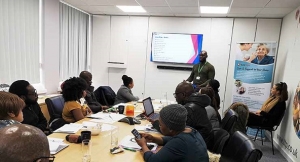It is very easy to assume a healthcare assistant and care assistant are the same. But, in fact there is a difference between them. We've come up with a way to easily define the two which will help you find the right job.
Knowing the difference between Healthcare Assistants and Care Assistants is extremely important when finding a job to tailor to your expertise.
Although the terms ‘care assistant’ and ‘healthcare assistant’ are used interchangeably by people and the duties of both roles are similar, they are usually in separate categories which helps to create some differentiation between social care and clinical/hospital care roles.
The ‘Care assistant’ sector on www.tltpcare.co.uk is intended to be used for role that are community, care home or domiciliary. Whilst the job title and description may use the term ‘healthcare assistant’ or ‘HCA’ to refer to the role, the difference in skills between a social care setting and a hospital or clinical setting is, in our opinion, too great to have all the jobs lumped in together in a single sector.
On www.tltpmedical.co.uk we have a sector called Primary Care where the role of a ‘Healthcare Assistant’ falls into. It is intended for hospital and clinical roles. Healthcare assistants can be found in hospitals or GP surgeries. They can also be known as ‘healthcare support workers’ or ‘auxiliary nurses’, particularly when working in a hospital setting.
Find out more about healthcare assistants and carers https://www.tltpmedical.co.uk/healthcare-assistants-and-carers including how you can progress within the role.
What about qualifications?
Typically, any care assistant or healthcare assistant role will require candidates to have a vocational qualification; NVQ or an equivalent. QCF or NVQ Level 2 or 3 diplomas in Health and Social care or equivalent are a typical requirement for care assistants. Whilst there is no formal requirement regarding qualifications for care assistant or HCA roles, it is common for care assistants and HCAs to undertake additional training whilst they are employed.
An enhanced DBS is also required to work any healthcare setting, which any reputable agency, like TLTP Medical, can process for you along with providing the necessary training required. The DBS and training must be renewed and kept up to date.
Latest Healthcare Assistant and Care Assistants Jobs
TLTP Medical work with several NHS Trusts across the UK, as a result we have a wide range of healthcare roles available that are flexible and rewarding. Visit https://www.tltpmedical.co.uk/job-search/browse/healthcare-assistants-carers/jobs for the latest jobs and apply today.
Don’t worry if you cannot find what you are looking for as we have new roles arriving daily. Register your details so you’ll never miss out on the latest opportunities.
Building a trustful relationship with patients
Working within healthcare is a highly rewarding role, yet at the same time it can be demanding especially during challenging times. It is important to create a strong relationship with your patient so that the very best care can be achieved. Building a good rapport will have such a positive impact not only on your career, but also on your experience with the patient and on the overall satisfaction.
We've put together 6 helpful tips to build a good relationship with your patients.
1. Take time to get to know patients
First and foremost, no patient likes to feel as if he or she is being rushed through an appointment. A big part of ensuring that a patient is comfortable is addressing him or her like an individual, as opposed to a medical condition. While asking someone questions, you should try making it more of a discussion rather than a strict Q&A. Also, introductions are key, so don't forget to introduce yourself and your role on the clinical team is important for building a positive patient relationship. It shows your patient that you want them to know exactly who you are and what you’ll be doing to care for them. Remember your patients' names. Whenever you can, address them by their first names, even if it's something like, "OK, Helen, I will go ahead and schedule your MRI".
2. Be prepared for appointments
It's good practice to review patients' reports before you see them in person. It can be a waste of time to ask for information already in their files. Also, if you discuss the reason for their last visit, you'll come across as observant and interested in the patient's individual needs.
3. Active Listening
Active listening is an essential holistic healthcare tool. It is a non-intrusive way of sharing a patient’s thoughts and feelings. The goal of active listening is to reflect the feeling or intent behind their words. You should listen to understand, not to respond. To practice active listening, follow these steps:
- Listen to what the patient is saying.
- Repeat what you heard to the patient.
- Check with the patient to ensure your reflection is correct.
By becoming a good listener you are increasing the chance of better understanding your patient and give him the best advice. In addition to that, listening demonstrates appreciation and value. By asking, looking, observing and listening to the patient, you can learn what is important for the patient as a human being and how to help him. The language you are using should be simple and conversational.
4. Keep your word
Keeping your word is one of the most effective ways to build rapport with patients. If you tell them you will do something, do it. If your ability to complete a task changes, communicate this with the patient. Don’t over-promise and under deliver. Keeping your word with patients not only builds rapport, it also builds trust.
5. Maintain eye contact and body language
Besides words, the key is to speak calm and to use the appropriate body language. Maintaining eye contact communicates care and compassion. It can also show empathy and interest in your patient’s situation. Eye contact and social touch connects you to your patients and communicates understanding. Your movements should be smooth, rhythmic and purposeful. You should always explain to your patient what you are doing.
6. Predict and anticipate their needs
Anticipation means looking ahead at what might happen with your patient and determining what he might need. Furthermore, verbalize your thoughts and don’t forget to ask questions. If you are able to predict and anticipate your patient’s needs, you will gain order, control and trust. Anticipating their needs will show them that you do care and that you are doing all that you can to provide them with the best care plan
There isn’t a manual on how to build rapport with patients. Some techniques will come easier to you than others. Practice each of these 7 ways to build rapport and choose the ones that come most naturally to you in your daily practice.
Carers Recruitment and Induction Day
Last week we held our monthly recruitment and induction day where our carers received their training in order for them to go out to work this week.
It was another successful event where we were able to get to know our carers a little better and they also got to know us too.

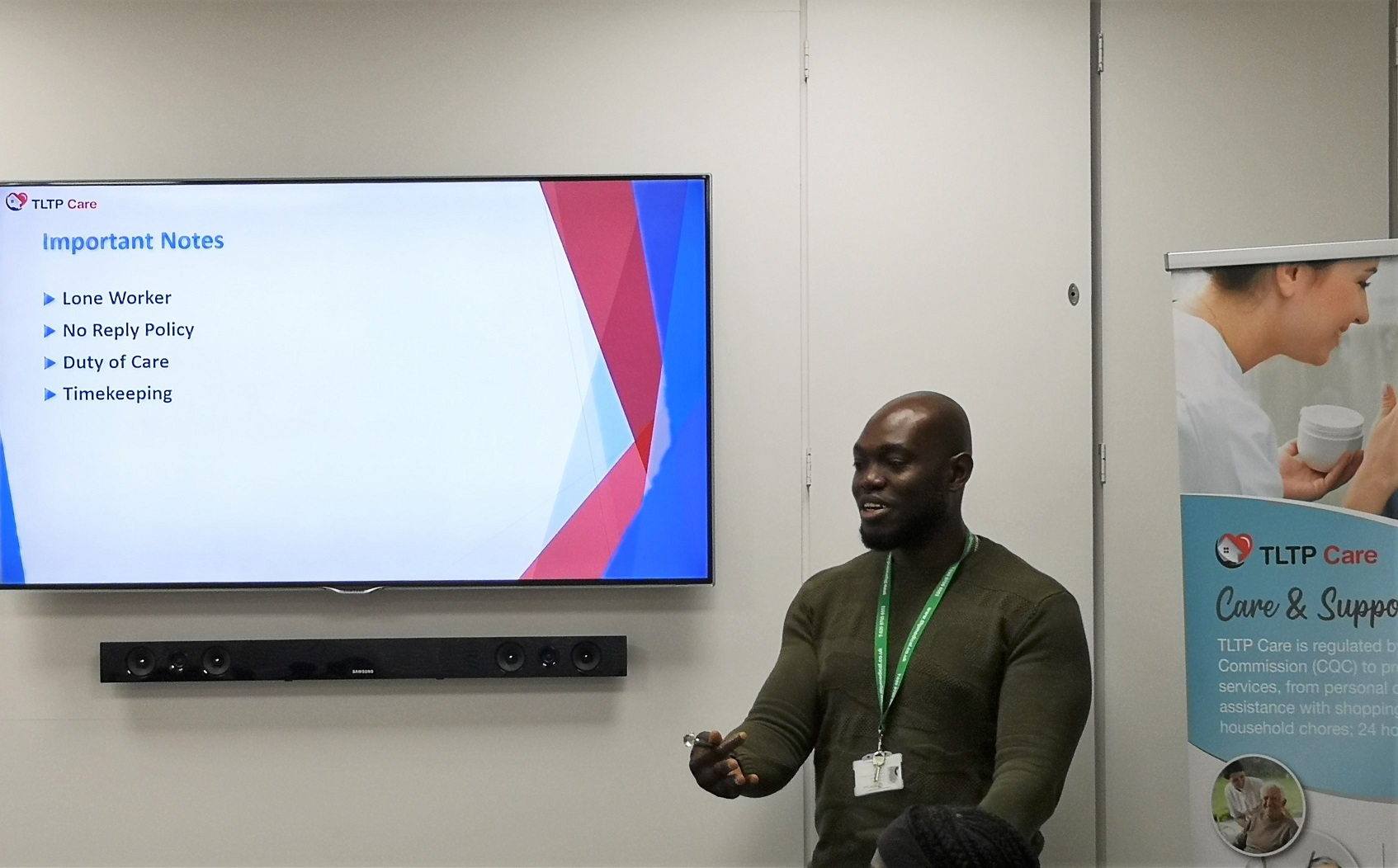
Our carers are now ready to service the residents of Waltham Forest and provide the essential care they require.
We are constantly recruiting for various care projects within both the NHS and private sectors in Kent, Surrey, Southampton, Hertfordshire and Essex.
All our roles offer great flexibility, from full-time, part-time to just a few hours a week. It’s the perfect role that lets you be in control of the hours you work. And, most importantly it is highly rewarding as the care you provide makes a positive difference to those who are their most vulnerable.
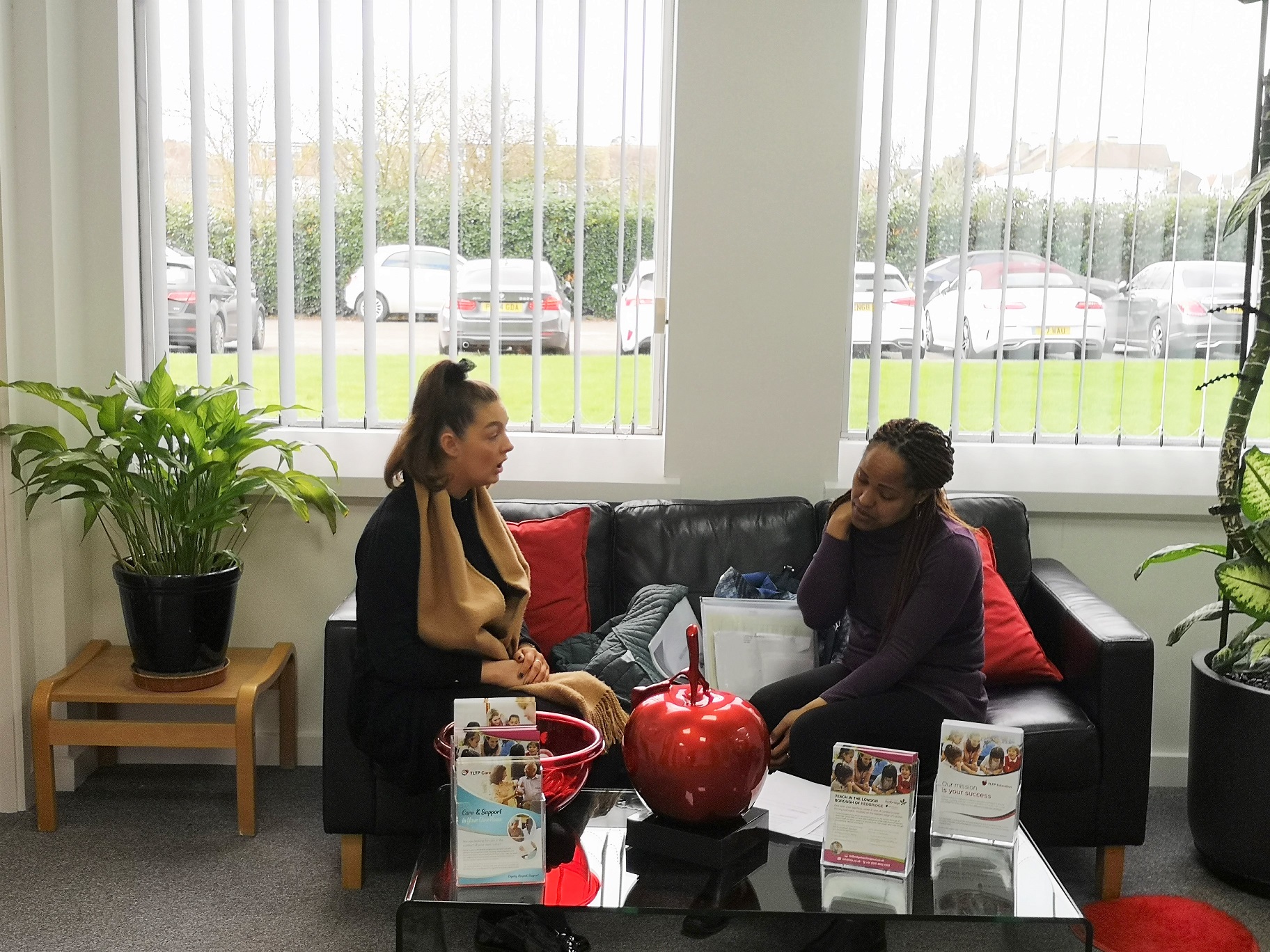
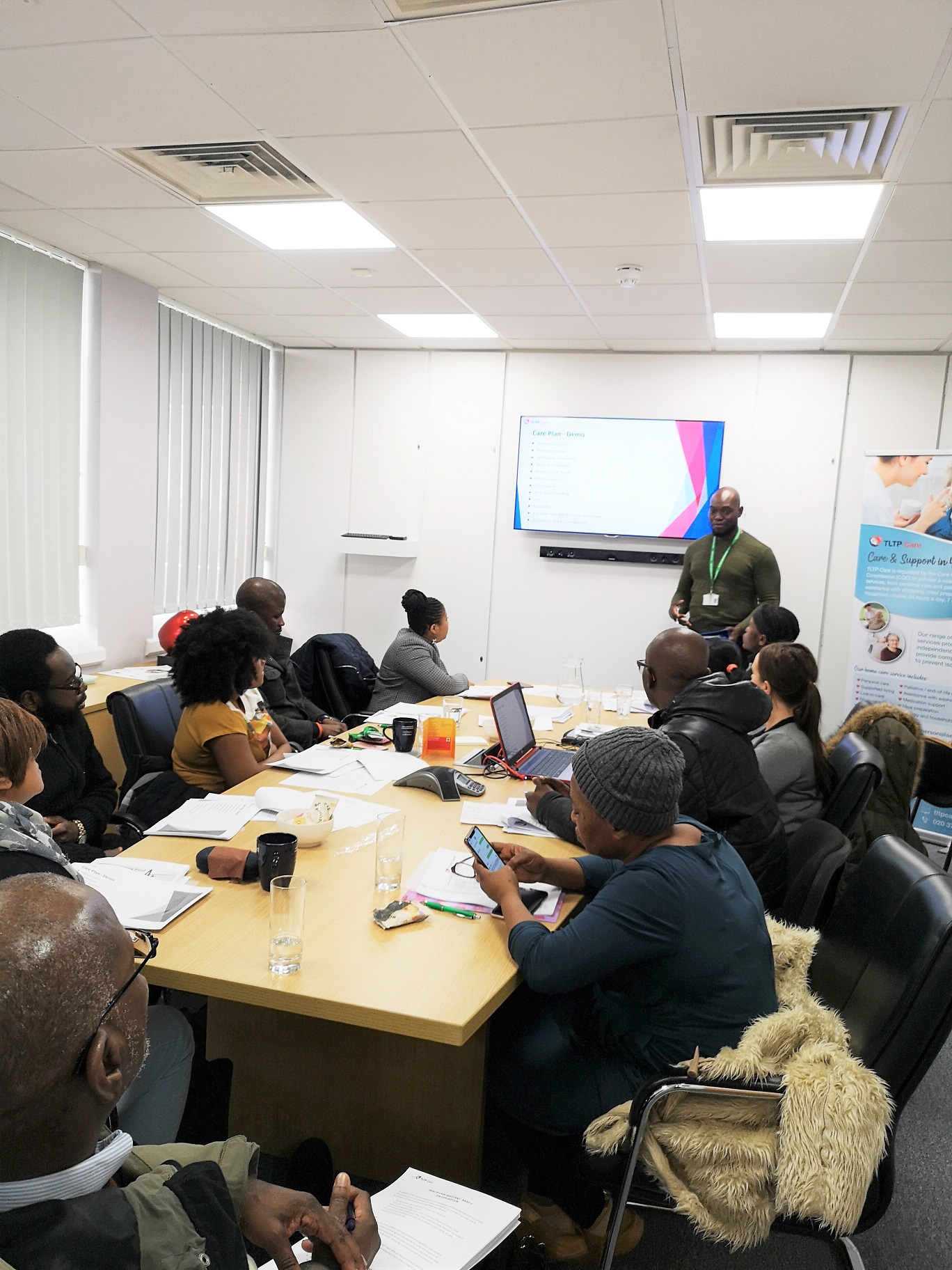
Join our team
If you would like to be informed as soon as a new job opportunity is available, please Register and subscribe to job alerts to ensure you never miss our latest roles.
Alternatively, please Request a Call Back or contact us on 020 8709 6553 and a consultant can talk through your individual requirements.
TLTP Medical - Healthcare Recruitment Drive
TLTP Medical’s recruitment drive has seen us travel to Kent, Essex, Southampton, Hertfordshire and across London where we have met and registered talented healthcare professionals who are working on a number of exciting NHS projects.
Our recruitment days have been the perfect opportunity for healthcare professionals to get a better insight into our current and upcoming healthcare positions. It’s also a chance for healthcare professionals to meet their friendly and well-informed recruitment consultant and for us to get to know you better.
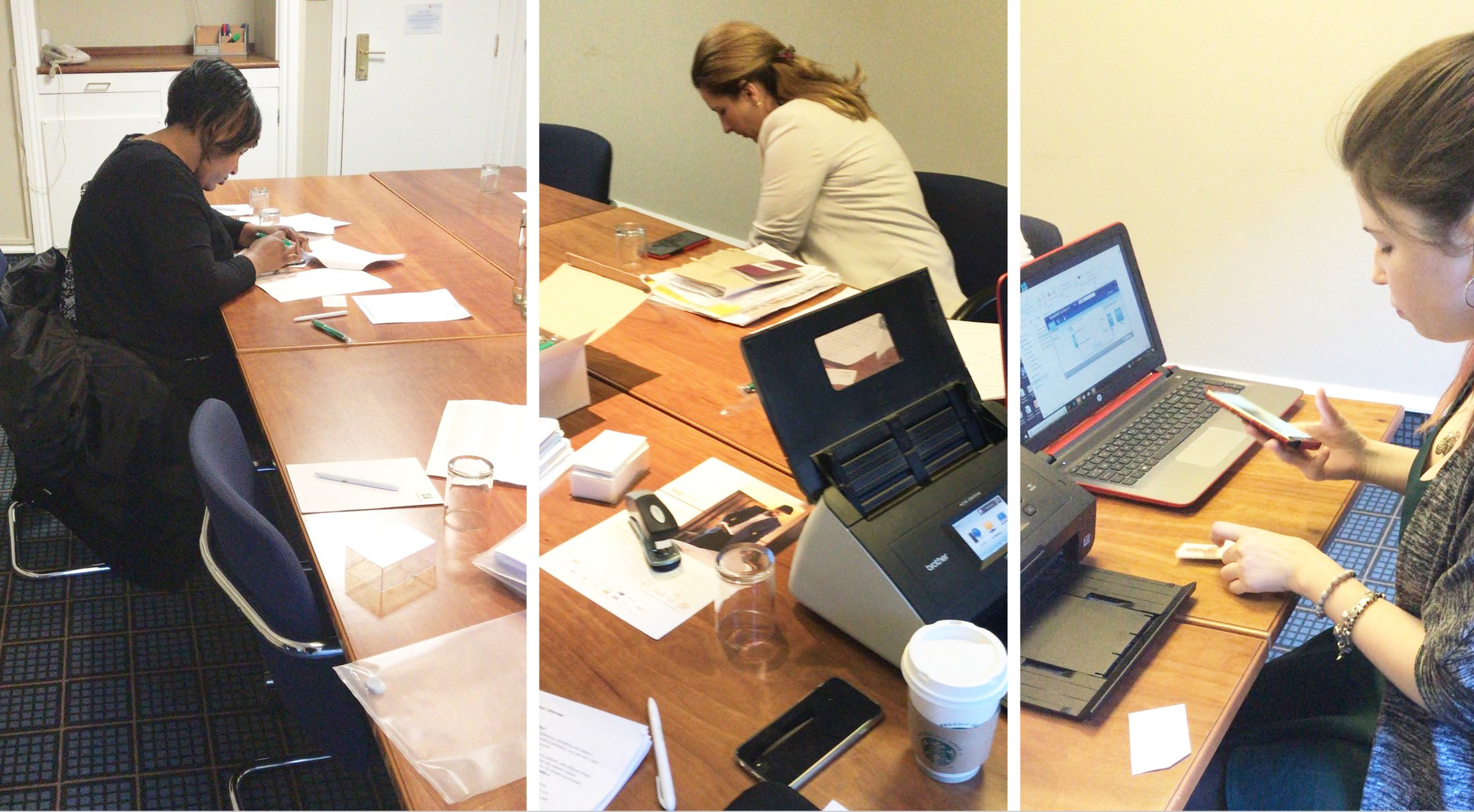

We are proud to be recruiting Carers and Healthcare Assistants for several NHS Trusts including Kent, Surrey, Southampton, Hertfordshire and Essex. We are acquiring new projects and roles on a daily basis and in 2020 we will be continuing our recruitment drive throughout the UK.
Join our team
As a specialist medical recruitment consultancy providing locum, temporary and permanent staff to the NHS and private sectors, our disciplines cover a range of roles within:
- Primary Care
- Nursing
- Allied Health Professionals
- Health Science Services
- Domiciliary Care
- Administration and Clerical
All our consultants possess a wealth of recruitment experience in the medical field and are therefore able to provide appropriate, informed guidance to all candidates, from newly qualified health professionals through to senior leaders.

If you would like to be informed as soon as a new job opportunity is available, please Register and subscribe to job alerts to ensure you never miss our latest roles.
Alternatively, please Request a Call Back or contact us on 020 8709 6553 and a consultant can talk through your individual requirements.

